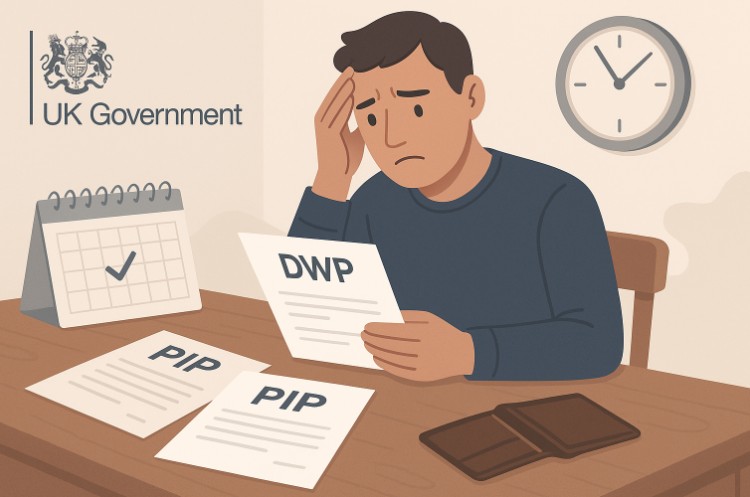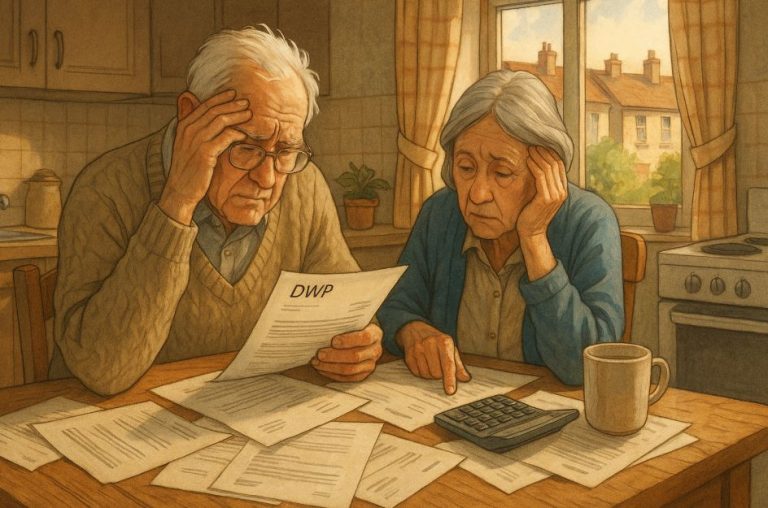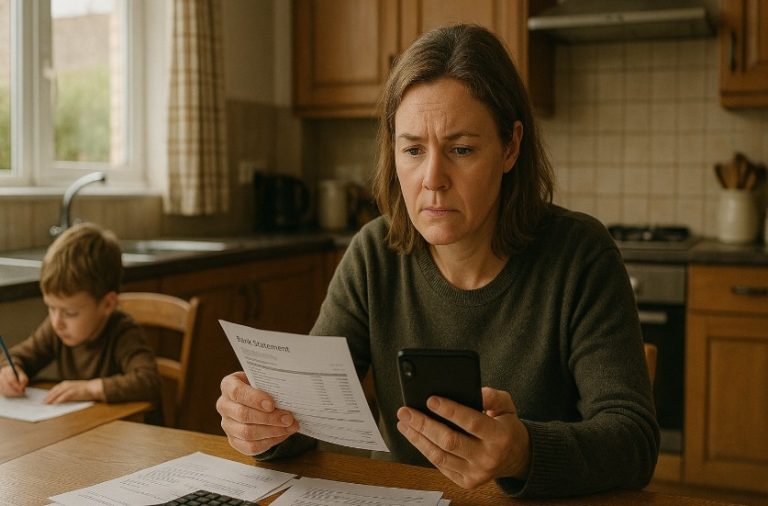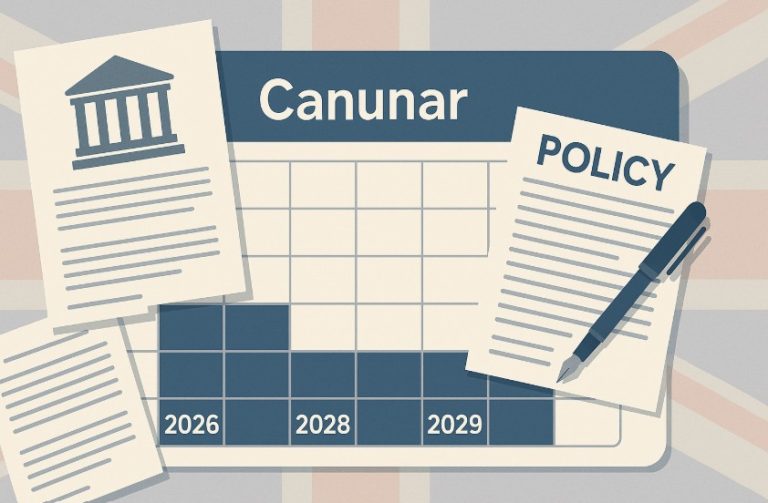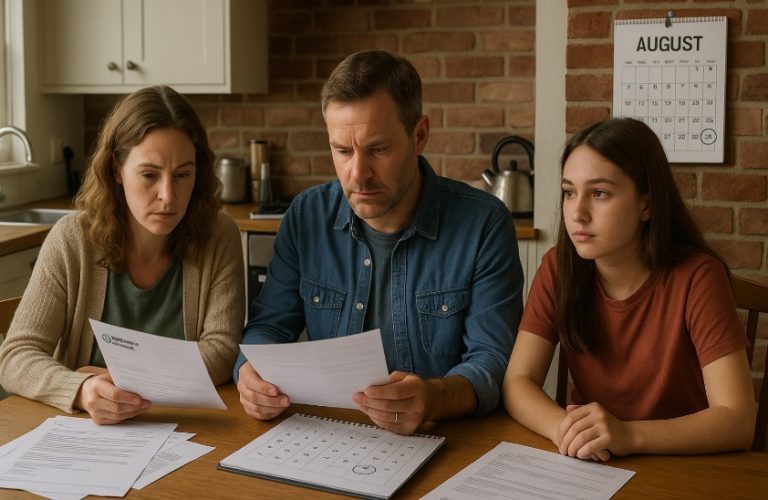For individuals navigating the UK benefits system, a common question arises: Is Housing Benefit still available, or has it been absorbed entirely into Universal Credit?
With the government gradually transitioning to a single-benefit system, understanding where housing support fits can be confusing. This guide clarifies the current state of Housing Benefit and how it relates to Universal Credit.
What is Housing Benefit and Who Can Still Claim It?

Housing Benefit is a form of financial support traditionally provided to individuals on low incomes to assist with rent payments.
It was once a standalone benefit, handled by local councils, and widely accessible to working-age people, pensioners, and those in need of housing assistance.
However, with the introduction of Universal Credit, most new claims for Housing Benefit have been phased out. Today, applying for Housing Benefit is mostly restricted to a select few like older adults or those living in specific types of supported housing.
- People who have reached State Pension age
- Individuals living in supported, sheltered or temporary accommodation
Those who fall outside these groups must apply for housing support through Universal Credit instead.
In cases where someone is already receiving Housing Benefit and their circumstances remain unchanged, their claim may continue. However, if that claim ends and they are not eligible for a new Housing Benefit claim, they will need to apply for Universal Credit for any future housing support.
How Has Universal Credit Replaced Housing Benefit?
Universal Credit was introduced to streamline the UK benefits system by combining six means-tested benefits into a single monthly payment. These legacy benefits include:
- Housing Benefit
- Income Support
- Income-based Jobseeker’s Allowance (JSA)
- Income-related Employment and Support Allowance (ESA)
- Child Tax Credit
- Working Tax Credit
As part of this change, the housing support that was once delivered through Housing Benefit is now included as the housing element of Universal Credit. This element is calculated based on the claimant’s circumstances and is paid monthly alongside other elements of Universal Credit.
The migration to Universal Credit has been gradual. People still claiming legacy benefits, including Housing Benefit, are being moved over to the new system under a process called managed migration. Voluntary migration is also an option, though doing so could result in changes to entitlement.
Who Gets Housing Costs Covered Under Universal Credit?

To receive housing support under Universal Credit, claimants must meet certain criteria. The housing element is assessed based on tenancy status and living arrangements.
Eligibility is generally granted to those who:
- Are responsible for paying rent
- Have a valid tenancy agreement
- Meet the standard Universal Credit eligibility rules
The amount provided through the housing element depends on several variables including local housing allowance (LHA) rates, the claimant’s age, income, household size, and where they live. LHA is used to determine the maximum amount that can be paid toward rent for private renters.
How Are Rent Payments Handled Through Universal Credit?
Unlike Housing Benefit, which was often paid directly to landlords, Universal Credit is typically paid to claimants, who are then expected to pay their rent themselves. This approach was designed to promote financial independence and responsibility.
There are situations where rent can still be paid directly to landlords through an arrangement known as an Alternative Payment Arrangement (APA). These are granted in cases such as:
- Tenants with significant rent arrears
- Claimants deemed vulnerable by their work coach
- Individuals struggling to manage their finances
Universal Credit payments are issued monthly and in arrears. This includes the housing element, which can lead to initial payment delays.
Claimants may be eligible for an advance to cover this period, but the advance is repaid through deductions from future payments.
When Might You Still Receive Housing Benefit Instead of Universal Credit?
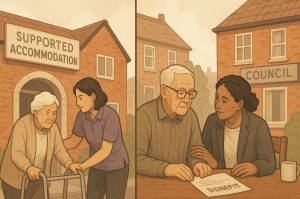
There are specific circumstances where a person can still apply for Housing Benefit rather than Universal Credit. These include:
State Pension age
-
- Single individuals over State Pension age can claim
- Couples where both have reached State Pension age are also eligible
- Couples with one partner receiving Pension Credit before 15 May 2019 may continue to claim
Living in supported, sheltered or temporary housing
-
- This includes temporary accommodation arranged by local authorities
- Refuges for survivors of domestic violence
- Supported housing that provides care, support, or supervision
In these cases, housing support is not covered by Universal Credit. Instead, Housing Benefit continues to be paid by local authorities.
If someone lives in supported housing that does not provide care, support, or supervision, they must apply for Universal Credit to cover their rent.
How Do You Apply for Housing Support Today in the UK?
The application process depends on which benefit you are eligible for:
- For most people, housing support is now claimed through Universal Credit. Applications are made online via the official government website
- If you are eligible for Housing Benefit, you must apply through your local council’s housing or benefits office
Documents typically required include:
- A signed tenancy agreement
- Recent bank statements
- Proof of income and savings
- Proof of identity and residency
It is recommended to use a benefits calculator before applying to determine the most suitable support.
What’s the Difference Between Housing Benefit and Universal Credit?

Understanding the distinction between Housing Benefit and the housing support provided through Universal Credit is essential for anyone seeking help with their rent. While both serve the same core purpose to help with housing costs they differ in administration, eligibility, and how payments are made.
Administration and Application
Housing Benefit was traditionally managed by local councils. Applicants would apply through their local authority, often in person or via paper-based forms, though many councils now offer online applications.
Universal Credit, unlike Housing Benefit, is overseen nationally by the Department for Work and Pensions (DWP) and must be applied for online through the official GOV.UK platform. This centralised system was designed to simplify access to benefits.
Payment Process and Frequency
One of the most noticeable differences is how and when payments are made. In many cases, Housing Benefit is issued weekly or every two weeks, with payments often sent straight to the landlord rather than the tenant.
Universal Credit, however, is paid monthly in arrears and usually goes directly to the claimant, who is then responsible for managing rent payments.
If a tenant is struggling financially or is considered at risk, they may qualify for special payment plans known as Alternative Payment Arrangements, which can ensure rent is paid directly to the landlord.
What the Benefit Covers?
Housing Benefit is purely for rent support. It does not combine other types of financial assistance.
Universal Credit, on the other hand, is a multi-component benefit that includes support for housing, children, childcare, disabilities, and basic living expenses in a single monthly payment.
Housing Types and Direct Payments
Housing Benefit is still used for tenants in supported, sheltered, or temporary housing, as well as pensioners. These groups often require more tailored support that Universal Credit currently doesn’t fully accommodate.
Below is a detailed comparison of the two systems:
| Feature | Housing Benefit | Universal Credit (Housing Element) |
| New Claims Allowed | Only for pensioners or supported housing | Available for most new claimants |
| Administration | Local councils | Department for Work and Pensions (DWP) |
| Payment Frequency | Weekly or fortnightly | Monthly |
| Payment Recipient | Landlord or tenant | Usually tenant |
| Application Process | Paper or online via council | Online via Gov.uk Universal Credit portal |
| Includes Other Support | No | Yes – includes income, children, etc. |
| Direct to Landlord by Default | Often | Only by arrangement (APA) |
| Rent Calculation Method | Based on eligible rent and circumstances | Based on Local Housing Allowance (LHA) and household need |
How Does the Transition from Housing Benefit to Universal Credit Work?

The move from Housing Benefit to Universal Credit is a major policy shift aimed at simplifying the welfare system. The process is being implemented across the UK in stages and affects millions of households.
Migration Methods
There are three main ways claimants transition from Housing Benefit to Universal Credit:
Natural Migration
This occurs when a change in circumstances such as a change in income, moving to a new home, or relationship changes ends a claimant’s eligibility for Housing Benefit.
They must then apply for Universal Credit to receive further support. Transitional Protection is not available for natural migration.
Voluntary Migration
Some claimants choose to move to Universal Credit before they are required to. While this may seem appealing, it can lead to lower overall payments if the claimant is not eligible for the same level of support under the new system. As with natural migration, no transitional protection is provided.
Managed Migration
Managed migration is the official process where the DWP contacts existing benefit claimants and instructs them to switch over to Universal Credit within a set deadline.
Claimants typically have three months to complete their application. Those who transition under managed migration are usually eligible for Transitional Protection, which temporarily tops up their Universal Credit payment if it’s lower than their previous benefits.
Transitional Protection
Transitional Protection is a key safety net designed to prevent claimants from being financially worse off during the switch to Universal Credit.
It works as a top-up payment, preserving the value of legacy benefits when Universal Credit would otherwise pay less.
This protection is gradually reduced if circumstances change, such as increases in earnings or changes in family composition.
| Transition Type | Trigger/Reason | Transitional Protection Available | Who Manages It |
| Natural Migration | Change in personal or financial situation | No | Claimant-initiated |
| Voluntary Migration | Personal choice to switch early | No | Claimant-initiated |
| Managed Migration | Notified by DWP to switch | Yes | DWP-led |
Consequences of Missing the Deadline
If a claimant fails to apply for Universal Credit after receiving a managed migration notice, their existing Housing Benefit and other legacy benefits will stop altogether. This could lead to missed rent payments and financial hardship. It is critical to apply within the given timeframe to avoid disruption.
One Way Transition
Once a person transitions to Universal Credit, they cannot go back to Housing Benefit, except in very limited cases such as qualifying for supported housing or reaching State Pension age.
This is why it’s vital for claimants to understand the implications of early voluntary migration, especially without Transitional Protection.
Advice and Support
To prepare for migration:
- Use a benefits calculator to estimate entitlements under Universal Credit
- Get in touch with a housing support worker or a community welfare advisor for personalised advice based on your living and financial situation.
- To avoid setbacks in your application, it’s smart to prepare all your paperworkblike tenancy agreements, ID, and income proofsbbefore starting the process.
The Department for Work and Pensions continues to expand managed migration across the UK, with plans to complete the transition for most claimants by 2025 or 2026. Keeping informed and prepared is key to a smooth and financially stable transition.
What Support Is Available If You’re Struggling With Rent Costs?

Sometimes, the rent support included in Universal Credit may not stretch far enough to cover the full cost of someone’s housing.In such cases, several additional forms of support are available:
- Discretionary Housing Payments (DHPs): Issued by local councils to help cover rent shortfalls or rent arrears
- Budgeting Advances: Interest-free loans for essential costs, including housing-related emergencies
- Local Welfare Schemes: Provide emergency financial support, including help with housing and utility bills
- Support for Mortgage Interest (SMI): For homeowners receiving certain benefits
These options aim to provide a safety net for individuals and families facing financial difficulties due to high housing costs or unexpected changes in circumstances.
| Support Type | Description | Administered By |
| Discretionary Housing Payment | Covers shortfalls in rent not covered by Universal Credit | Local councils |
| Budgeting Advance | Helps cover emergency costs like rent in advance | Department for Work and Pensions (DWP) |
| Local Welfare Assistance | Emergency grants or loans for essentials including housing | Local authorities |
| Support for Mortgage Interest | Helps with interest payments on mortgages for eligible homeowners | DWP |
Conclusion
In most cases, housing support is now provided through Universal Credit, and Housing Benefit is no longer an option for new claimants.
However, specific groups such as pensioners and people in supported housing may still be eligible to claim Housing Benefit separately.
Understanding whether you qualify for one or the other depends largely on your age, housing situation, and benefit history.
As the benefits system continues to evolve, staying informed will ensure you receive the correct support for your housing costs.
FAQs about Housing Benefit and Universal Credit
Can I get both Housing Benefit and Universal Credit?
Generally, no. You cannot receive both at the same time unless you’re in supported or temporary accommodation.
Do landlords get paid directly under Universal Credit?
Only in specific circumstances, such as rent arrears or vulnerability. Otherwise, tenants are paid directly and must pay their rent.
What happens to Housing Benefit when I move to Universal Credit?
Once you move onto Universal Credit, your existing Housing Benefit stops, and rental assistance is rolled into your new monthly UC payment.
Is Housing Benefit still available for pensioners?
Yes, if you’ve reached State Pension age and meet eligibility requirements, you can apply for Housing Benefit.
Can I choose to stay on Housing Benefit instead of Universal Credit?
No, unless you meet specific criteria (like being a pensioner or in supported housing). Otherwise, you must claim Universal Credit.
How long does it take for Universal Credit to pay rent?
It usually takes about five weeks for the first payment, with housing costs included in the monthly payment.
What help is available if Universal Credit doesn’t cover all my rent?
You may be eligible for Discretionary Housing Payments, budgeting advances, or local welfare schemes.


